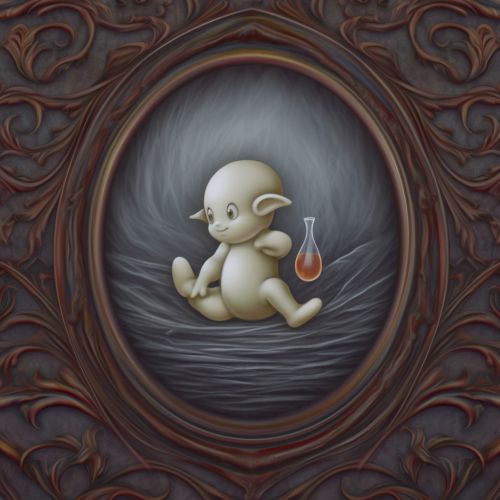Fetal Development
Introduction
Fetal development, also known as embryogenesis, is the process by which an embryo forms and develops, beginning at fertilization and continuing until birth. This process is a complex sequence of events that includes cell division, differentiation, and growth.


Stages of Fetal Development
Fetal development is typically divided into three main stages: the germinal stage, the embryonic stage, and the fetal stage.
Germinal Stage
The germinal stage begins at fertilization when the sperm and egg unite to form a single cell, known as a zygote. This stage lasts approximately two weeks and is characterized by rapid cell division and the formation of a blastocyst.
Embryonic Stage
The embryonic stage begins after the germinal stage, around the third week of pregnancy, and lasts until the end of the eighth week. This is a critical period in development as the major organs and body systems begin to form, including the heart, brain, and spinal cord.
Fetal Stage
The fetal stage begins at the end of the embryonic stage, around the ninth week of pregnancy, and continues until birth. This is the longest stage of prenatal development and is characterized by rapid growth and maturation of the organs and systems established during the embryonic stage.
Factors Influencing Fetal Development
Several factors can influence fetal development, including maternal health, nutrition, and exposure to harmful substances.
Maternal Health
The mother's overall health can significantly impact fetal development. Conditions such as diabetes, hypertension, and infectious diseases can lead to complications during pregnancy and affect the health of the fetus.
Nutrition
Proper nutrition is crucial for healthy fetal development. Deficiencies in certain nutrients, such as folic acid, can lead to developmental abnormalities.
Exposure to Harmful Substances
Exposure to harmful substances, such as alcohol, drugs, and certain medications, can negatively impact fetal development and lead to a range of health problems.
Fetal Development and Birth
The final stages of fetal development prepare the fetus for life outside the womb. This includes the development of the lungs and the maturation of the digestive system.
Birth
Birth marks the end of the fetal stage and the beginning of the neonatal period. The timing of birth is typically around 40 weeks from the last menstrual period, but can vary.
